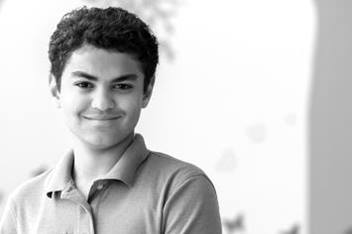Neuropsychology Track
APPIC Program Match Number: 150915
Number of Internship Positions: 1
The Neuropsychology Track is dedicated to providing broad based training consistent with standards through the American Psychological Association (APA) Commission on Accreditation (CoA), as well as adhering to Houston Conference Guidelines. This track provides a Major Area of Study in neuropsychology, with over 50% of training in clinical neuropsychology and didactic experiences consistent with the Houston Conference Guidelines for knowledge and skill. Our program will be coordinating with relevant training organizations to incorporate the new Minnesota Conference Guidelines as implementation guidance evolves. A primary goal of the internship is to prepare students for later careers, leadership, and ABPP board certification in Clinical Neuropsychology.
The Neuropsychology intern participates in neuropsychological assessment, inpatient and medical clinic consultation, and intervention throughout the course of their training year. The Neuropsychology intern focuses the majority of their clinical activities on children, adolescents, and young adults with a history of neurological or medical conditions impacting brain function. The Neuropsychology intern spends approximately 60% of their time in assessment activities. In addition to yearlong general outpatient neuropsychological assessments, the intern is involved in two 6-month specialty experiences (TBI/rehabilitation and epilepsy), two corresponding 6-month medical clinic rotations, yearlong intervention, as well as didactics. These experiences are described in more detail below.
Yearlong Outpatient Assessment
The Neuropsychology Program at Nationwide Children's Hospital receives a high volume of referrals annually, largely from medical providers. Referrals are received from a variety of hospital services, including the Sections of Neurology, Neurosurgery, Physical Medicine and Rehabilitation, Hematology/Oncology, Genetics, Cardiology, Developmental-Behavioral Pediatrics, as well as many outpatient clinics (e.g., Myelomeningocele, Craniofacial, Cerebral Palsy Clinics, etc.) and community physicians. Patients are not generally seen in our service unless they have a medical/neurologic condition. Referrals with a primary concern for autism spectrum disorder are typically seen at the NCH Child Development Center, rather than neuropsychology.
Interns see a wide range of cases over the course of the training year, but they typically see a higher volume of certain patient populations including epilepsy, 22q deletion syndrome, as well as craniofacial and cardiac conditions. Interns also often see children and adolescents with a history of traumatic brain injury, brain tumor, acute lymphocytic leukemia (ALL), sickle cell disease, encephalitis/meningitis, myelomeningocele, prematurity/low birth weight, prenatal substance exposure, and cerebral palsy.
The Neuropsychology intern participates in outpatient neuropsychological evaluations throughout their year, broken into two 6-month rotations with different outpatient assessment supervisors. The intern typically completes one full-day outpatient neuropsychological evaluation per week and up to two half-day outpatient neuropsychological evaluations per month. These assessments include a neuropsychological test battery appropriate for the child’s age and presenting concerns. Half-day evaluations may involve brief, targeted evaluations or they may be preschool cases. Preschool referrals typically include children ages 3 to 5 years old, but infants and toddlers can also be referred for these brief evaluations.
6-Month Rotation with Focused TBI/Rehabilitation Experience
While on this 6-month rotation, interns will gain additional experiences with:
- Inpatient Neuropsychological Services (supervised by Dr. Christine Koterba). During the inpatient rotation, interns will provide inpatient neuropsychological consultation and assessment on the CARF-accredited inpatient rehabilitation unit. Neuropsychological services may also be conducted on other inpatient units across the hospital (e.g. pre-transplant, oncology, neurology units, etc.). Inpatient assessment experiences include assessing orientation and level of consciousness, monitoring of cognitive recovery, and conducting targeted neuropsychological evaluations. Interns also participate in school re-entry meetings and closely collaborate with the multi-disciplinary rehab team. On the inpatient rehabilitation unit, interns will also provide education to parents of children with traumatic brain injuries using the BRAIN Program (Brain Injury Recovery & Assessment Information sessions with Neuropsychology).
- Interdisciplinary Concussion Clinic (supervised by Dr. Doug Bodin). This is a medical clinical in the Physical Medicine & Rehabilitation department that manages acute and sub-acute concussion patients. Interns will complete brief neuropsychological screening, provide psychoeducation and brief intervention and communicate with PM&R physicians.
6-Month Rotation with Focused Epilepsy Experience
While on this 6-month rotation, interns will gain additional experiences with:
- Pre- and Post Epilepsy Surgery Neuropsychological Evaluations (supervised by Dr. Kelly McNally). During this rotation, interns will complete pre surgical neuropsychological evaluations for patients undergoing a Phase I epilepsy evaluation. They will attend the weekly multi-disciplinary epilepsy surgery conference and present findings for patients they have seen. They may also be involved in post-surgical evaluations and/or conducting evaluations for children with urgent assessment needs related to their epilepsy (e.g. evaluating patients with EE/DE-SWAS).
- Interdisciplinary Epilepsy Clinic (supervised by Dr. Jennifer Cass). Epilepsy Clinic is an interdisciplinary clinic that includes epileptologists, nurse practitioners, developmental psychologist, social workers, and a variety of trainees. Interns will complete brief consultations that may include brief assessment of psychological needs, providing education about cognitive and behavioral functioning and epilepsy, identifying referral or resource needs, and providing brief interventions.
Outpatient Intervention
The Neuropsychology intern usually carries 4 to 6 outpatient treatment cases throughout the year. Intervention experiences include:
- Psychological therapy for children with neurologic conditions (2-3 cases at a time). Supervised by Dr. Kristen Trott, pediatric psychologist. Presenting concerns include a range of emotional, behavioral, and adjustment concerns related to their medical condition (e.g. adherence, pain, coping and adjustment, anxiety, behavioral compliance, etc.)
- Biofeedback (1-2 cases at a time), supervised by Dr. Cathy Butz and Dr. Lindsey Vater, pediatric psychologists. Presenting concerns include headache or abdominal pain or other physical symptoms exacerbated by anxiety or stress.
- Teen Online Problem Solving (TOPS; 1-3 cases at a time). Supervised by Dr. Kelly McNally. This is an evidence-based online intervention for adolescents with a history of traumatic brain injury and other neurological conditions. The TOPS program provides information about the effects of childhood brain conditions and training in problem-solving and communication skills to help families cope more effectively.
Supervision
- During each 6-month rotation, interns will work with 2 primary neuropsychological assessment supervisors.
- Individual supervision will also be conducted for medical clinic services and psychotherapy cases.
- Interns will receive group supervision for TOPS intervention cases, biofeedback, and inpatient assessment cases
- Interns will attend a neuropsychology group supervision meeting (every other week) and will present cases in this group supervision format along with other neuropsychology trainees and faculty
- Interns typically will receive 2-3 hours of individual supervision and 2-3 hours of group supervision per week.
Summary of Clinical Experiences:
|
|
6-month rotation (TBI focus) |
6-month rotation (Epilepsy focus) |
|
Outpatient Neuropsychological Assessment |
|
|
|
Specialty Assessment Experience |
|
|
|
Interdisciplinary Medical Clinic |
|
|
|
Outpatient Intervention |
|
|
Depending on dissertation status, the Neuropsychology intern may be able to collaborate on research or quality improvement projects during their training year. Activities consist of collaboration with faculty on ongoing research programs. Opportunities exist to participate in externally and internally funded research and unfunded clinical research projects. The intern participates in research meeting every other month with faculty involved in research, as well as other neuropsychology trainees. This meeting involves discussion of research proposals, data analyses, manuscript preparation, and other issues related to ongoing departmental research projects. Interns will complete a research-based presentation.
Didactic experiences in the Neuropsychology track are both formal and informal. The intern is expected to complete readings in clinical neuropsychology, especially as they pertain to pediatric populations and specific cases. Readings are chosen in consultation with clinical supervisors. In addition to internship-wide formal didactic activities, the inter will also participate in the following neuropsychology-specific didactics and other learning experiences:
- Neuropsychology Seminar (weekly): Focus on ABPP-CN Board preparation. Includes topics on neuroanatomy, neuropsychological conditions, and neuropsychological assessment. Once a month we conduct a mock fact-finding exercise aimed at preparation for the neuropsychology board certification oral examination.
- Neuropsychology Case Conference (bi-weekly): Trainees rotate presenting a neuropsychology clinical case for group discussion. Quarterly, we conduct a mock practice sample defense exercise aimed at preparation for the neuropsychology board certification oral examination.
- Neuropsychology Research Seminar (monthly): Trainees and faculty will present ongoing research projects or recent relevant research publications for group discussion. Interns will complete a formal research presentation during this seminar.
- Neuropsychology Clinical Practice and Professional Issues (monthly): Topics include issues related to cultural competency and individual differences as well as guest speakers from community agencies and other professionals outside of our department.
- Neuroradiology Rounds (bi-weekly): Neuroradiologists provide detailed review of neuroimaging and clinical findings with a group of physicians and trainees from multiple disciplines.
- Epilepsy Surgery Conference (weekly, during Epilepsy rotation): Multidisciplinary presentations of patients undergoing Phase I epilepsy surgery evaluations including neurosurgery, neurology, radiology, nuclear medicine, neuropsychology, and social work.
- Rehab Psychosocial Rounds (weekly, during TBI rotation): Multidisciplinary providers discuss issues related to psychosocial functioning for patient admitted to the rehab unit.
Other optional experiences are also available including:
- Medical Grand Rounds
- Research Institute presentations
- Pediatric Psychology Clinical Services Seminar
A large goal of the Neuropsychology Track is to provide support and mentoring to enhance professional development of future neuropsychologists. These activities occur both formally as part of supervision and didactics, but also informally. Neuropsychology trainees also are included in problem solving and discussions about practice issues and quality improvement such as clinical program development, improved access to care, increased efficiency of services, and business practices.
The Neuropsychology intern works five days per week. The Neuropsychology intern does not have on-call, evening, or weekend responsibilities.
Sample Weekly Schedule
|
Activity |
Hours |
|
Neuropsychology Evaluations or Inpatient Consult Services |
8-10 |
|
Outpatient Psychotherapy |
4-6 |
|
Hospital Clinics |
4-5 |
|
Individual/Group Supervision |
4-5 |
|
Didactic Seminars |
4-5 |
|
Report Writing, Clinical Notes, Phone Calls, etc. |
15 |
|
Hours Weekly |
40-50 |
Neuropsychology Track Training Faculty
Even though faculty are listed below in categories, it should be noted that all faculty take part in each intern’s training to different degrees, including clinical supervision, mentoring, and/or didactic training.
| Pediatric Neuropsychology | Research | Pediatric Psychology |
Successful Applicants
Many factors are considered when reviewing applications. Neuropsychological evaluation experience with children and intervention with children using behavioral or cognitive-behavioral approaches are required to be considered for the Neuropsychology Track. Candidates with no individual child intervention experience will not be considered for interview. Applicants who have been invited to interview for the Neuropsychology Track typically are from doctoral programs which have a Major Area of Study or an Emphasis in Clinical Neuropsychology, according to the Taxonomy for Education and Training in Clinical Neuropsychology (Scott et al., 2017). Specifically, successful applicants have the following experiences:
- Completion of at least 1-2 formal courses in neuropsychology
- Research experience in neuropsychology
- Experience working in a medical or hospital setting
- Neuropsychological evaluation experience with pediatric medical populations
- Experience with pediatric psychology interventions focusing on coping, adjustment, and adherence in children or adolescents with acute or chronic medical conditions
- A minimum of 200-400 intervention hours (2022-2023 mean ~ 580)
- A minimum of 200-400 neuropsychological assessment hours (2022-2023 mean ~ 500)
- A minimum of 15-20 child integrated psychological evaluation reports (2022-2023 mean ~ 53)
Reference:
Scott, S., Cimino, C., Stricker, N., Heffelfinger, A., Gess, J., Osborn, K., & Roper, B. (2017). Taxonomy for education and training in clinical neuropsychology: Past, present, and future. The Clinical Neuropsychologist, 31:5, 817-828.



